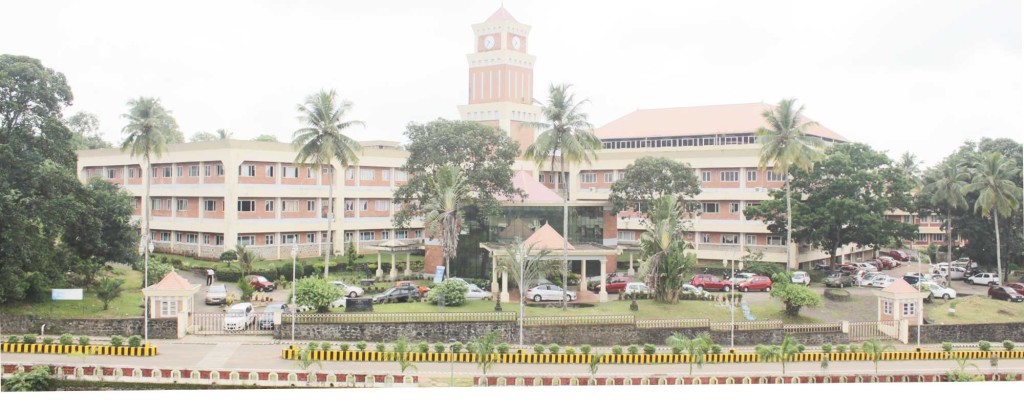PUSHPAGIRI – A BRIEF HISTORY
The Catholic Church has been engaged in the ministry of healing all over the world for the past two thousand years. The same mission also drove the Founder fathers of Pushpagiri at Tiruvalla, Kerala.This started as a small clinic with eight beds in 1959 to cater to rural maternity care has now grown to a full-fledged 1200 bedded, hi-tech super specialty Medical College Hospital.
Across a span of half a century, Pushpagiri has travelled forward with a renewed understanding and vision, ‘We Care God Cures’, which proclaims the faith of taking upon each others’ burdens and humility before the divine providence from where all cure and healing happens. The unwavering commitment of the Church to provide value-based education also saw its results initially in Nursing Education at Pushpagiri, which began as early as 1964.This way, Pushpagiri has played a vital role in contributing to the migration of qualified nurses from Kerala to other states in India, Middle East, Europe and America, which propelled the economic and social development of Kerala, particularly the women empowerment. Following the establishment of Pushpagiri Medical Society in 1992, on the road to improvisation and expansion, Pushpagiri saw a new beginning, a decade later, in 2002 with the starting of one of the first private medical colleges in Kerala – Pushpagiri Institute of Medical Sciences and Research Centre. In the past decade, Pushpagiri further went along to establish premiere institutions in the field of health care education for Nursing (2002), Pharmacy (2004), Dental Sciences (2006) and Allied Health Sciences (2008).
In pursuit of excellence for more than five decades now, Pushpagiri steers forward with the mission ‘to work towards a Knowledge Society with life in abundance, through Science and Technology, improving Health Care for our immediate community, the state, the country and the world at large’.
The rationale behind setting up of the educational institutions was to generate human resources in the field of health care. Pushpagiri had its mission rooted on the farsightedness of creating a Knowledge Society, where every working person would be a Knowledge Worker and where knowledge multiplies, when shared freely between everyone. India definitely needed more knowledge Workers(when developed nations have 70% work population as knowledge Workers, India has only 7% Knowledge Workers)
But in the journey to realization of providing exemplary health care services, setting up educational institutions was not enough, as both fields of health care and education comes to a stand-still after some time. Stagnancy and outdated services start setting in, due to lack of innovation and scientific thinking. Hence, Research becomes an integral part for further scientific studies, discoveries and breakthroughs in health care. And these ideas again need to be conveyed through education. In short, Health Care – Education -Research becomes a never-ending cycle in the mission of Pushpagiri.
Pushpagiri Research Centre was set up in the year 2010. A diverse range of research activities are being undertaken by the research team, constantly triggered by the need for providing quality services for successful affordable health care services and products. Owing to the frequent outbreak of fatal viral diseases in Kerala during monsoons, the need for setting up a centre for diagnostics and studies of virus research became inevitable.Taking up this cause passionately, the Pushpagiri Centre for Virology, the only active, fully fledged facility of such a kind in Kerala, started in 2011.
If knowledge creation is the main output of research activities, then health care in countries like India will become indigenous and affordable through science and technology, which in turn, will develop new processes and products. In its way forward, Pushpagiri believes that the future of India depends on the quality of health of its millions of people and in the creation of a significant number of knowledge workers – both constantly facilitated by research in health care.

